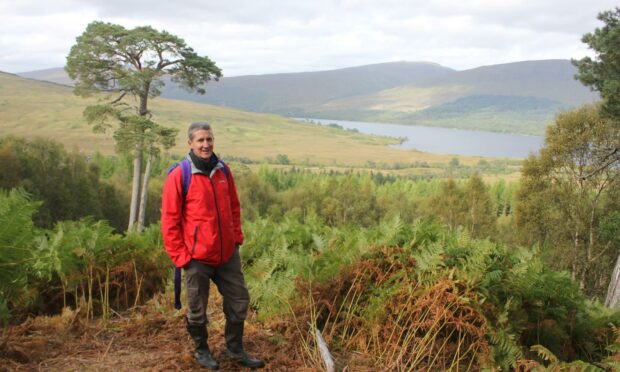A charity is calling for a debate on regulating the system of giving carbon payments to create new woodlands.
Woodland Trust Scotland (WTS) says the payments should empower communities, not hinder them.
Concern has been growing that Scotland faces a net zero ‘land grab’ with large organisations buying estates to enhance their environmental credentials and offset carbon emissions, potentially using government grants for tree-planting.
Public interest tests on land purchases
It is feared communities are being priced out of owning or benefiting from local land by so-called green lairds.
WTS says some “negative unintended consequences” are emerging from woodland carbon projects and “sensible regulation” is needed.
It is calling for public interest tests for both Forest Grant Scheme (FGS) applications and land purchases above a certain size.
The charity says the size of the area involved should be part of the debate and a point needs to be identified above which responsibilities to the wider community should come into play.
We would like to see the carbon market established as an overwhelmingly positive force for communities.”
Alastair Seaman
The FGS supports the creation of new woodlands, contributing towards the Scottish Government target of 10,000 hectares of new woodlands annually.
Woodland Trust Scotland director Alastair Seaman said: “We would like to see the carbon market established as an overwhelmingly positive force for communities, and an effective counter to the climate and biodiversity crises.
“There is no doubt that woodland carbon projects can be a positive mechanism for woodland expansion, but some negative unintended consequences are emerging.
Sensible regulation required
“Sensible regulation is required to counter these and make the system work better.
“We would support regulation to ensure community access to affordable land, access to affordable housing and empowerment of local communities to shape their own destinies.
“Appropriate checks and balances need to be in place to ensure that private and public funding are delivering maximum public benefit including community benefit. ”
Mr Seaman said Scotland’s percentage tree cover is around half that of the average European country, and only a tiny proportion is native.
“Scotland’s biodiversity is amongst the most depleted in the world. Looking after our existing woodlands and creating more of them is an effective response to both the climate and biodiversity crises.
“Income received through the Woodland Carbon Code, a voluntary assurance standard for UK woodland creation projects, is a valuable driver for creating new native woodland in Scotland at the scale we need to respond to the nature and climate crises.
Carbon funds can help local ambitions
“It also offers communities an opportunity to raise the funds needed to pursue their ambitions.”
WTS is working with communities in Assynt, Eigg and Langholm on woodland projects.
“We would like to see the carbon market established as an overwhelmingly positive force for communities, and an effective counter to the climate and biodiversity crises.”
He said the charity supports the Just Transition Commission’s view that the benefits of significant new woodland creation should be ‘felt widely by rural communities, and not just existing landowners’.
Last year land reform minister Màiri McAllan said action is being taken to help balance community rights with the need for private investment in the push towards net zero.

